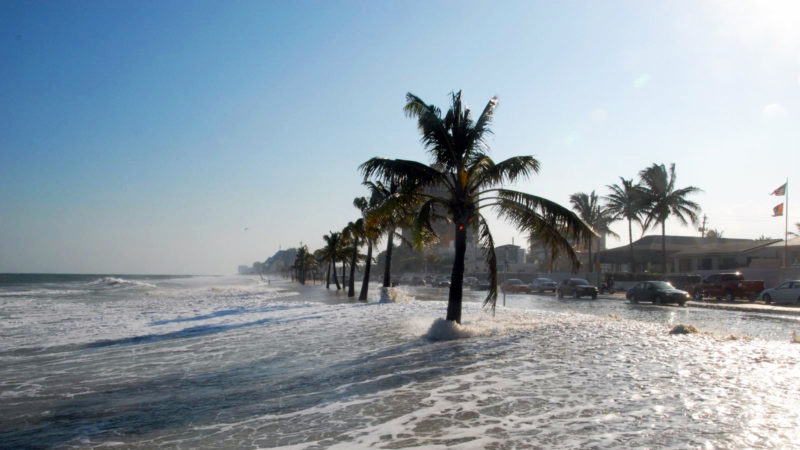Sea level rise from melting ice sheets is accelerating around the world and the annual rate of the rise could more than triple every year by 2100, according to data published recently in the Proceedings of the American Academy of Sciences (PNAS).

A team of researchers led by University of Colorado-Boulder professor of aerospace engineering sciences, Steve Nerem, relied on information collected by satellites over 25 years.
The research of the team shows that sea level rise from melting ice sheets is already responsible for half of the 7 centimeters of increase observed since 1993. At the current rate, the rise of the level of the oceans of about 3 millimeters per year right now could more than triple to reach 10 an extra millimeters per year by 2100.
This would mean that the sea level could rise by 65 centimeters by the end of the century, a figure in line with estimations by the UN Intergovernmental Panel on Climate Change, with serious implications for coastal cities and small island states such as Fiji.
Climate change is driving ocean rise through two phenomena: the rapid melting of ice at the poles and the increased concentrations of greenhouse gases in the atmosphere. This latter phenomenon warms the temperature of the water. Hot water – less dense than cold water – takes up more space, causing the ocean to expand.
“This acceleration, driven mainly by accelerated melting in Greenland and Antarctica, has the potential to double the total sea level rise by 2100 compared to projections that assume a constant rate,” says Nerem. With the increase accelerating each year, the level of the oceans would rise by more than 60 centimeters by the end of the century. “And that’s naturally a conservative estimate”, he warns.
The results of this work are broadly in line with the projections of the UN Intergovernmental Panel on Climate Change (IPCC) AR5 report, submitted in 2014.
The rapid implementation of the Paris Agreement on Climate Change is crucial to avoid temperatures and sea levels from rising even faster. The main goal of the agreement is to maintain the rise in global average temperature well below 2°C, and as close as possible to 1.5°C.
Global greenhouse gas emissions, mainly caused by fossil fuel combustion and deforestation, need to peak soon and then decline rapidly to avoid the worst impacts of climate change, which include rising sea levels, more droughts, floods and forest fires.
In order to help achieve the objectives of the Paris Agreement agreement, a unique process dubbed the Talanoa Dialogue was set up by Fiji, which has the chair of the UN Climate Change Conference COP23. The Talanoa Dialogue is an international discussion in which countries and other key actors monitor progress under the Paris Agreement while seeking to increase global ambition.
